Louis XVI, grandson of Louis XV, ascended to the French throne in 1774 at the young age of 20, inheriting a kingdom steeped in both grandeur and burgeoning discontent. While his lineage placed him at the heart of the French Royal Family, his reign would ultimately mark the dramatic end of centuries of Bourbon rule and the French monarchy as it was known. His story, intertwined with that of his family, provides a fascinating, and ultimately tragic, insight into the lives and eventual downfall of the French royal family during the tumultuous years leading up to and during the French Revolution.
Born into privilege and expected to embody the absolute power of the French monarchy, Louis XVI’s upbringing was, ironically, ill-suited to the challenges he would face. Educated by the Duke of La Vauguyon, his curriculum was broad, encompassing history, science, and languages, yet it lacked practical preparation for the intricacies of governance. As the third son, his path to the throne was unexpected, further contributing to a perceived lack of readiness for the immense responsibilities he would inherit. Despite this, Louis XVI was an intellectual, influenced by Enlightenment thinkers who championed ideas that questioned the very foundations of absolute monarchy – a concept central to the identity of the French royal family for generations.
Upon becoming king, Louis XVI sought to address the mounting issues facing France, particularly the severe financial strain caused by years of extravagant spending and costly wars. He dismissed his grandfather’s ministers and appointed reformers like Turgot and Necker, individuals who understood the urgent need for fiscal reform. These ministers attempted to tackle the deeply entrenched system of tax exemptions enjoyed by the nobility and clergy, the privileged classes that formed the bedrock of the French royal family’s power. However, Louis XVI’s support for these reforms was hesitant and inconsistent. Facing resistance from powerful court factions and lacking the decisive leadership necessary to overcome entrenched interests, these early attempts at reform ultimately failed. This failure to address the financial crisis and social inequalities set the stage for the events that would engulf the French royal family and France itself.
The year 1789 marked a turning point in French history and the beginning of the end for the French royal family’s absolute power. Forced by the escalating financial crisis, Louis XVI convened the Estates-General, an assembly representing the three orders of French society: the clergy, nobility, and the commoners (the Third Estate). This event, intended to find solutions to the kingdom’s problems, instead unleashed forces that would dismantle the old order. The Third Estate, emboldened by Enlightenment ideals and fueled by widespread discontent, asserted its power, leading to the formation of the National Assembly and the burgeoning French Revolution.
In the midst of this upheaval, the personal life of Louis XVI and the French royal family became increasingly intertwined with the political drama. In 1770, Louis had married Marie Antoinette, an Austrian Archduchess, a union intended to solidify an alliance between France and Austria. Marie Antoinette, often unfairly portrayed as frivolous and out of touch, became a symbol of the perceived excesses of the French royal family in the eyes of the increasingly resentful populace. Together, Louis XVI and Marie Antoinette had four children, but only two, Madame Royale and the Dauphin (later Louis XVII), survived to witness the revolution. The royal court at Versailles, once the glittering center of French power and culture, became a focal point of revolutionary anger, seen as a symbol of royal extravagance and detachment from the suffering of the French people. The extended French royal family, including Louis XVI’s brothers, the Count of Provence (later Louis XVIII) and the Count of Artois (later Charles X), and his sister Madame Élisabeth, were also caught in the revolutionary tide.
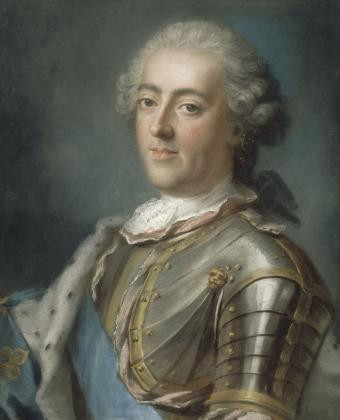 King Louis XV Portrait
King Louis XV Portrait
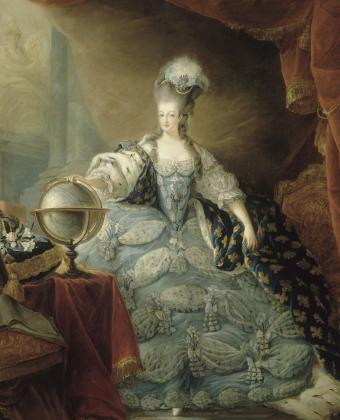 Queen Marie Antoinette Portrait
Queen Marie Antoinette Portrait
Beyond the political sphere, Louis XVI possessed personal interests that offer a glimpse into his character. He was a man of intellectual curiosity, fascinated by applied sciences and technological advancements. He established workshops within Versailles dedicated to physics, mechanics, chemistry, and even watchmaking and lock-making, reflecting a mind engaged with the practical application of knowledge. His patronage extended to maritime exploration, sponsoring the voyages of La Pérouse, and he even hosted early aeronautical experiments at Versailles, demonstrating a forward-thinking approach to scientific discovery, somewhat at odds with the image of an aloof monarch.
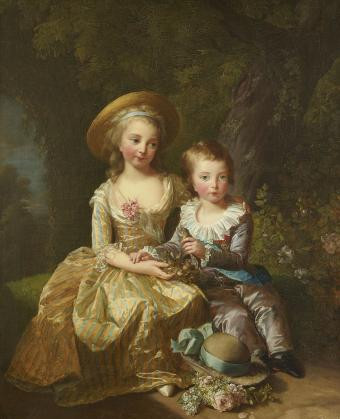 Madame Royale Portrait
Madame Royale Portrait
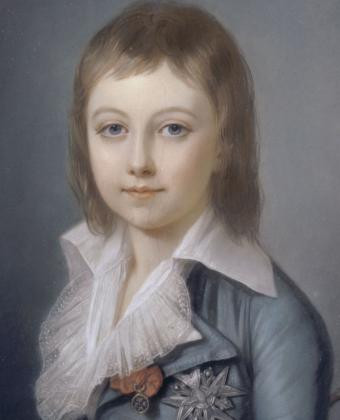 King Louis XVII Portrait
King Louis XVII Portrait
The French Revolution dramatically altered the life of the French royal family. Initially, Louis XVI appeared to embrace reform, but his reluctance to fully endorse the revolutionary changes, particularly the abolition of privilege and the Declaration of the Rights of Man, fueled suspicion and distrust. In October 1789, a mob marched on Versailles, forcing the royal family to relocate to Paris, effectively becoming prisoners in the Tuileries Palace. Louis XVI’s ill-fated attempt to flee Paris in 1791 further eroded public trust and sealed his fate. Tried by the revolutionaries in 1792, the monarchy was abolished, and France declared a republic. Louis XVI, once the absolute monarch, was guillotined on January 21, 1793. He was the last king to reside at Versailles, and his execution marked a brutal end to an era of French history and the definitive fall of the French royal family from power.
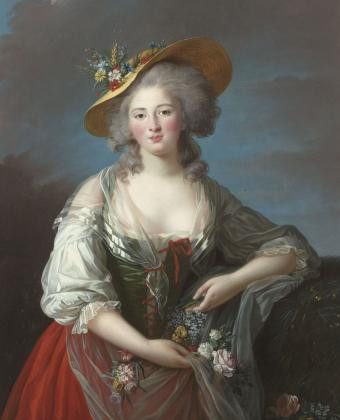 Madame Elisabeth Portrait
Madame Elisabeth Portrait
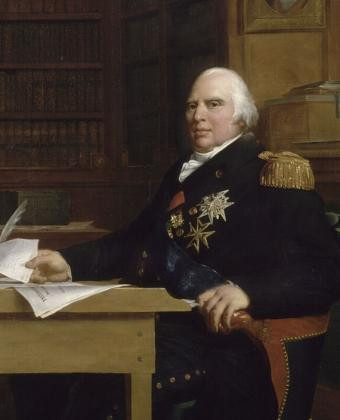 King Louis XVIII Portrait
King Louis XVIII Portrait
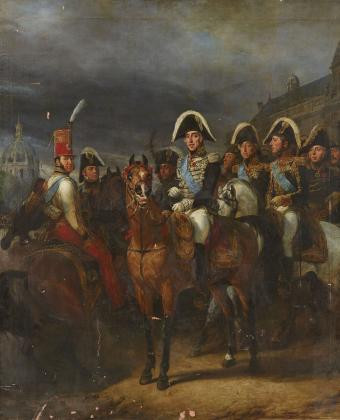 King Charles X Portrait
King Charles X Portrait
The story of Louis XVI and his family is a pivotal chapter in European history. It is a narrative of privilege and responsibility, of reform and revolution, and ultimately, of tragedy. The French royal family, personified by Louis XVI and Marie Antoinette, became symbols of a dyingAncien Régime, swept away by the forces of change that reshaped France and Europe forever. Their story continues to fascinate and inform, offering valuable lessons about power, leadership, and the enduring impact of historical events.

